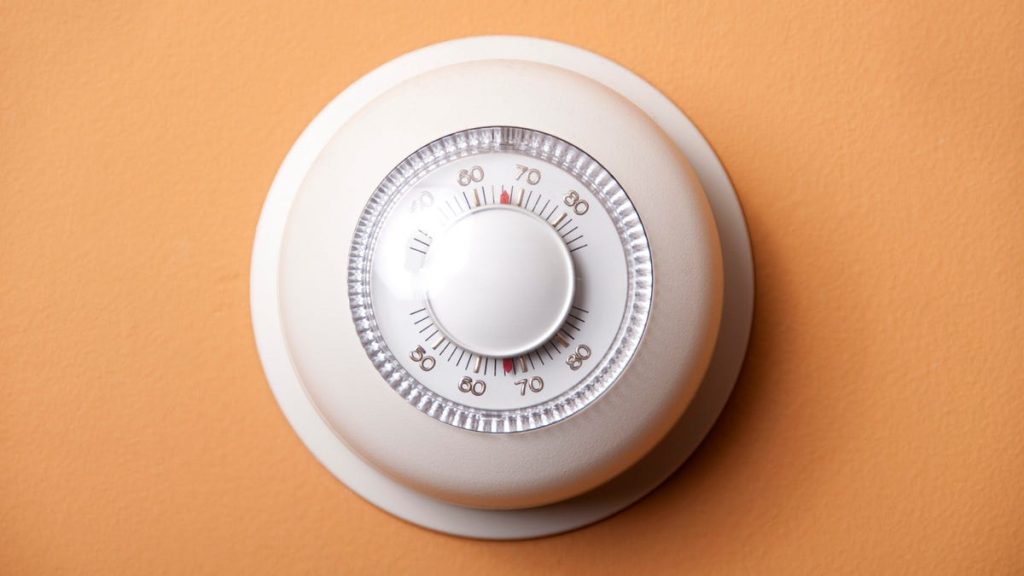To optimize your energy efficiency and save money on your heating bill, it’s important to set your thermostat to the correct temperature. In the summer, the US Department of Energy recommends keeping your home at 78 degrees when you’re home, 82 degrees when sleeping, and 85 degrees when away. By following these guidelines and turning your thermostat up 7 to 10 degrees for eight hours a day, you can save up to 10% on your yearly energy costs. In the winter, the optimal temperature is 68 degrees for most of the day, with a decrease of 7 to 10 degrees for eight hours. This routine can also lead to significant energy savings.
Setting your thermostat at an appropriate temperature is crucial because it affects how efficiently your home’s heating and cooling systems operate. In the summer, setting your air conditioner to a lower-than-normal temperature will not cool your home faster but result in unnecessary expenses. A higher temperature setting will actually slow the flow of heat into your home, saving energy and money. Similarly, keeping your home cooler in the winter will help it retain heat longer, reducing the amount of energy required to maintain comfort. Additionally, the positioning of your thermostat matters – it should be away from drafty areas and direct sunlight for maximum efficiency.
To further enhance your energy savings, consider installing a smart thermostat or programmable thermostat that can automate temperature changes and reduce the need for manual adjustments. If you have a heat pump system, ensure that your thermostat is compatible with this setup. In addition to adjusting your thermostat, you can explore alternative energy sources like solar power to generate your own electricity and reduce your reliance on the public grid. Solar panels provide clean energy year-round and can help lower your energy costs long-term.
By being mindful of your thermostat settings and following energy-saving practices, you can significantly reduce your energy consumption and lower your utility bills. Whether it’s setting your thermostat to the recommended temperatures in summer and winter, optimizing its placement, or investing in smart technology, small changes can make a big impact on your overall energy usage. Prioritizing energy efficiency not only benefits your finances but also contributes to a more sustainable and environmentally friendly lifestyle. Consider implementing these strategies to maximize your energy savings and improve the efficiency of your home heating and cooling systems.


